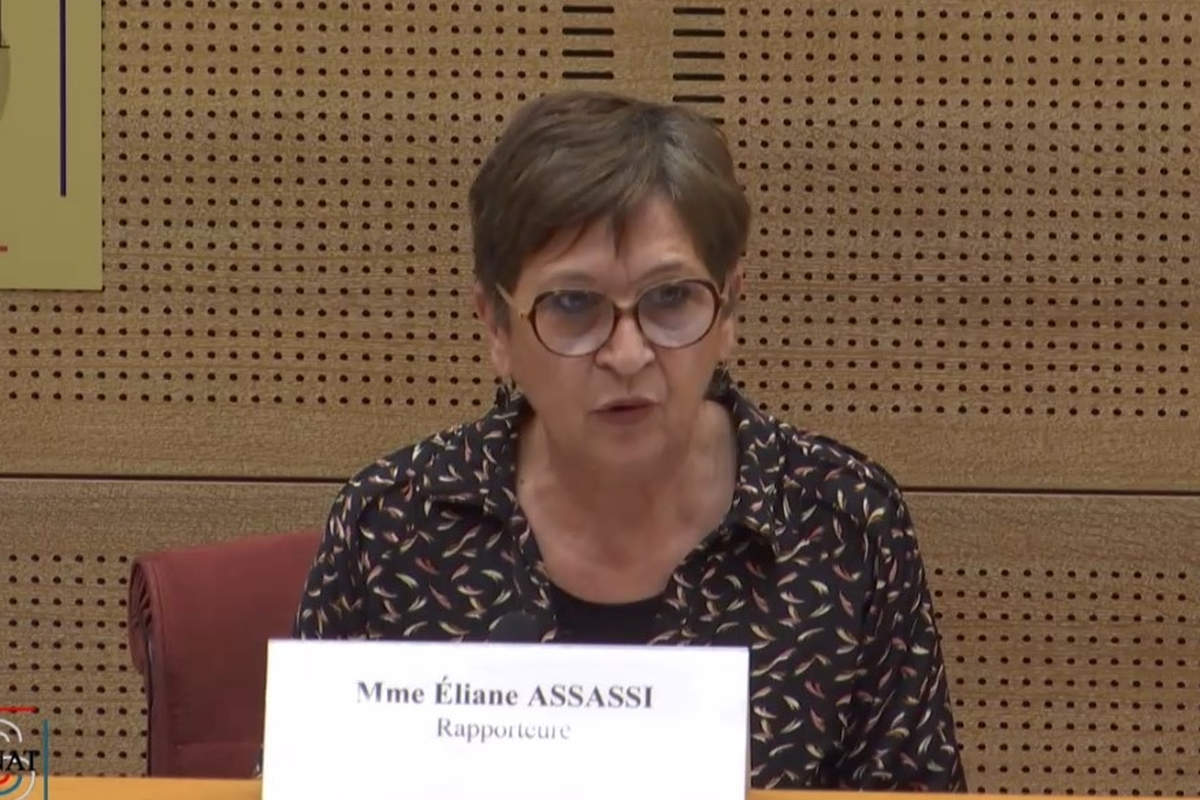Éliane Assassi, rapporteur for the Senate’s commission of inquiry into the influence of private consulting firms on public policy, presented the conclusions of her report on Thursday. Explosive.
The Senate has created a commission of inquiry on the growing influence of private consulting firms on public policies, at the request of the Groupe communiste républicain, citoyen et écologiste. Chaired by Arnaud Bazin, this commission investigated for four months to measure the influence of private consulting firms.
After 40 hearings, 47 people heard under oath, 7300 documents analyzed, the commission reveals “a tentacular phenomenon”. Its rapporteur, Éliane Assassi, notes: “A massive and growing recourse to consulting firms”.
“A lot of money”.
The health crisis has highlighted the intervention of consultants in the conduct of public policies. The example of McKinsey is in everyone’s memory. But this was only the tip of the iceberg: on a daily basis, private firms advise the State on its strategy, organization and IT infrastructure.
They are called Accenture, Bain, Boston Consulting Group (BCG), Capgemini, Eurogroup, EY, McKinsey, PwC, Roland Berger or Wavestone and employ about 40,000 consultants in France. Often the sons of… or the friends of friends. Because these private firms handle lots and lots of money. “In 2021, the State’s consulting expenses exceeded one billion euros” according to the commission of inquiry. Nearly 85% of spending is concentrated in 5 ministries: Interior, Economy and Finance, Armed Forces, Ecological Transition, Social Ministries.
“A reflex”
The Senate commission of inquiry further emphasizes that the use of private consultants has become a reflex, especially when the government is in trouble. “A relationship of dependence can even develop,” the report notes.
For example, the state uses consulting services from Sopra Steria and EGIS to manage road safety cameras, for an estimated amount of 82 million euros between 2017 and 2026. Similarly, it had to call on McKinsey to implement the IT part of the reform of personalized housing assistance (APL). Cost for the State: 4 million euros!
The health crisis managed by the private sector
The most glaring and recent example concerns the management of the Covid-19 epidemic. At the beginning of the health crisis, on Thursday 5 March 2020, an agent of the Ministry of Solidarity and Health wrote to his colleagues
Health wrote to his colleagues, “I saw a logistics company yesterday used to working in pharma […]. They can be here on Monday to set up the thing. […]. I asked for the order of magnitude, 50,000 euros to set up the system for us and follow the deployment for 15 days.” The “company” is the Citwell consulting firm; the “thing” is a management system for supplying France with masks.
A sprawling phenomenon.
This example shows the unpreparedness of the State and the various ministries in the management of the crisis. At least 68 orders were placed, for a total amount of 41.05 million euros. According to the data collected on a sample of 5 firms, the intervention of a consultant is invoiced on average 2 168,38 euros per day.
Three firms account for three quarters of the expenses: McKinsey (the keystone of the vaccine campaign), Citwell (the logistician) and Accenture (the architect of the information systems, including the health pass). Between them, they will mobilize 11,128 consultant days during the crisis.
But these are only examples among many others.
The commission of inquiry therefore makes a series of proposals to put an end to the opacity of private consulting firms.
THE MAIN PROPOSALS OF THE COMMISSION OF INQUIRY
Put an end to the opacity of consulting services
- Publish annually, in open data, the list of consulting services provided by the State and its operators
- Present consulting services in the single social report, to allow representatives of public agents to discuss them
- Prohibit consulting firms from using the administration’s logo in their deliverables, for greater clarity and traceability in their services
Better control the use of consulting firms
- Systematically evaluate consulting services and apply penalties when consulting firms do not provide satisfaction
- Map the skills in the ministries and draw up a “re-internalisation” plan to make better use of in-house skills and make less use of consultancy firms
Strengthen the ethical rules of consulting firms
- Prohibit pro bono services, apart from sponsorship in non-market sectors (humanitarian, cultural, social, etc.)
- Impose a declaration of interest on consultants so that the administration can prevent the risks of conflict of interest, under the control of the HATVP
- Exclude from public contracts firms that have not respected their ethical obligations
- Provide for the systematic destruction of data entrusted to consulting firms at the end of their mission, under the supervision of the CNIL.
- Senate Committees of Inquiry
http://www.senat.fr/commission/enquete
Telephone: 01.42.34.23.28.Consulting firm McKinsey accused of tax evasion in France
- The American giant, which regularly conducts consulting missions for the #Elysée, has paid no corporate taxes in 10 years. One of its executives had claimed the opposite in January before a Senate investigative committee. #McKinsey #AnticorVeille
Le géant américain, qui mène régulièrement des missions de conseil pour l’#Elysée, n’a payé aucun impôt sur les sociétés en 10 ans. L’un de ses dirigeants avait affirmé l’inverse en janvier devant une commission d’enquête du Sénat. #McKinsey #AnticorVeille https://t.co/JmYi8KtStp
— Anticor (@anticor_org) March 17, 2022

